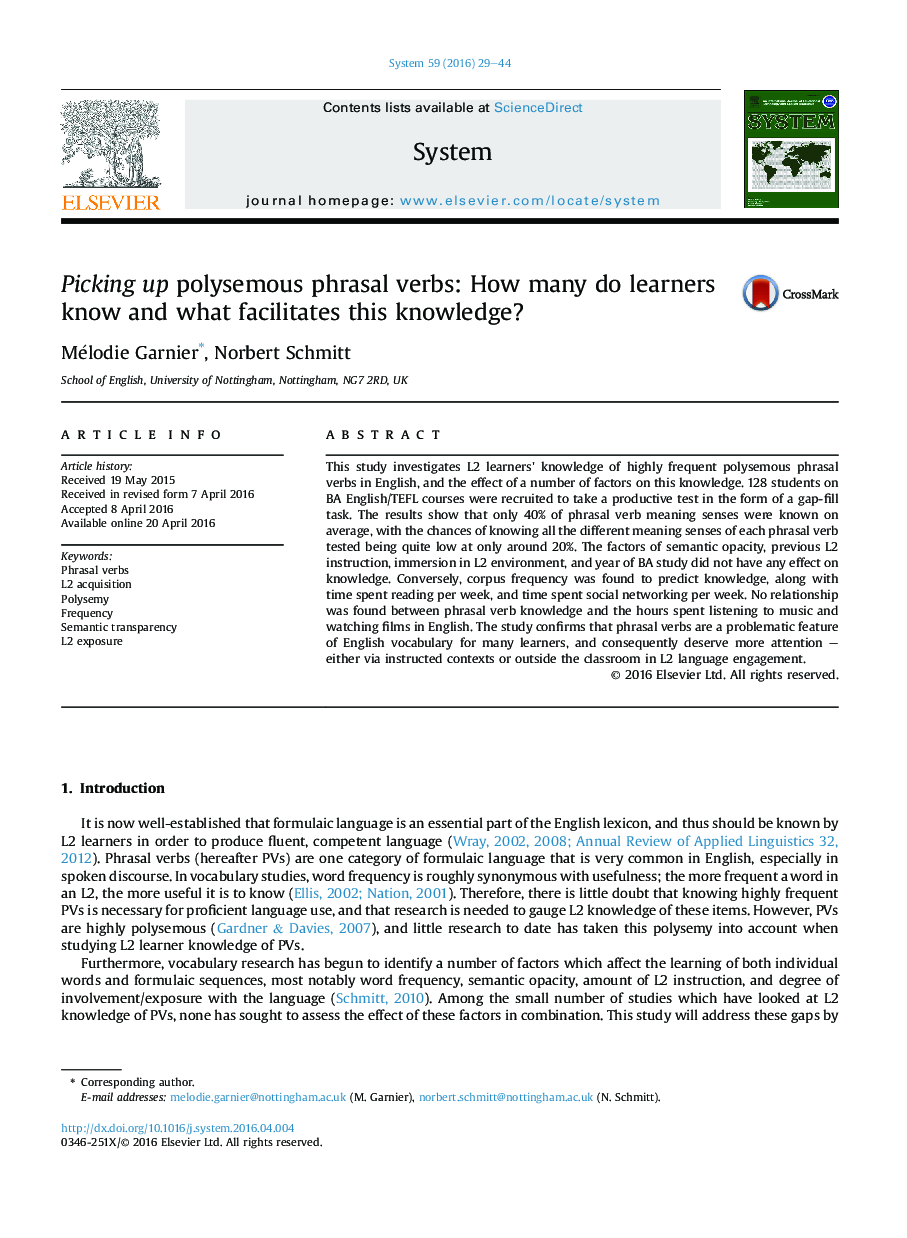| Article ID | Journal | Published Year | Pages | File Type |
|---|---|---|---|---|
| 372957 | System | 2016 | 16 Pages |
This study investigates L2 learners' knowledge of highly frequent polysemous phrasal verbs in English, and the effect of a number of factors on this knowledge. 128 students on BA English/TEFL courses were recruited to take a productive test in the form of a gap-fill task. The results show that only 40% of phrasal verb meaning senses were known on average, with the chances of knowing all the different meaning senses of each phrasal verb tested being quite low at only around 20%. The factors of semantic opacity, previous L2 instruction, immersion in L2 environment, and year of BA study did not have any effect on knowledge. Conversely, corpus frequency was found to predict knowledge, along with time spent reading per week, and time spent social networking per week. No relationship was found between phrasal verb knowledge and the hours spent listening to music and watching films in English. The study confirms that phrasal verbs are a problematic feature of English vocabulary for many learners, and consequently deserve more attention – either via instructed contexts or outside the classroom in L2 language engagement.
